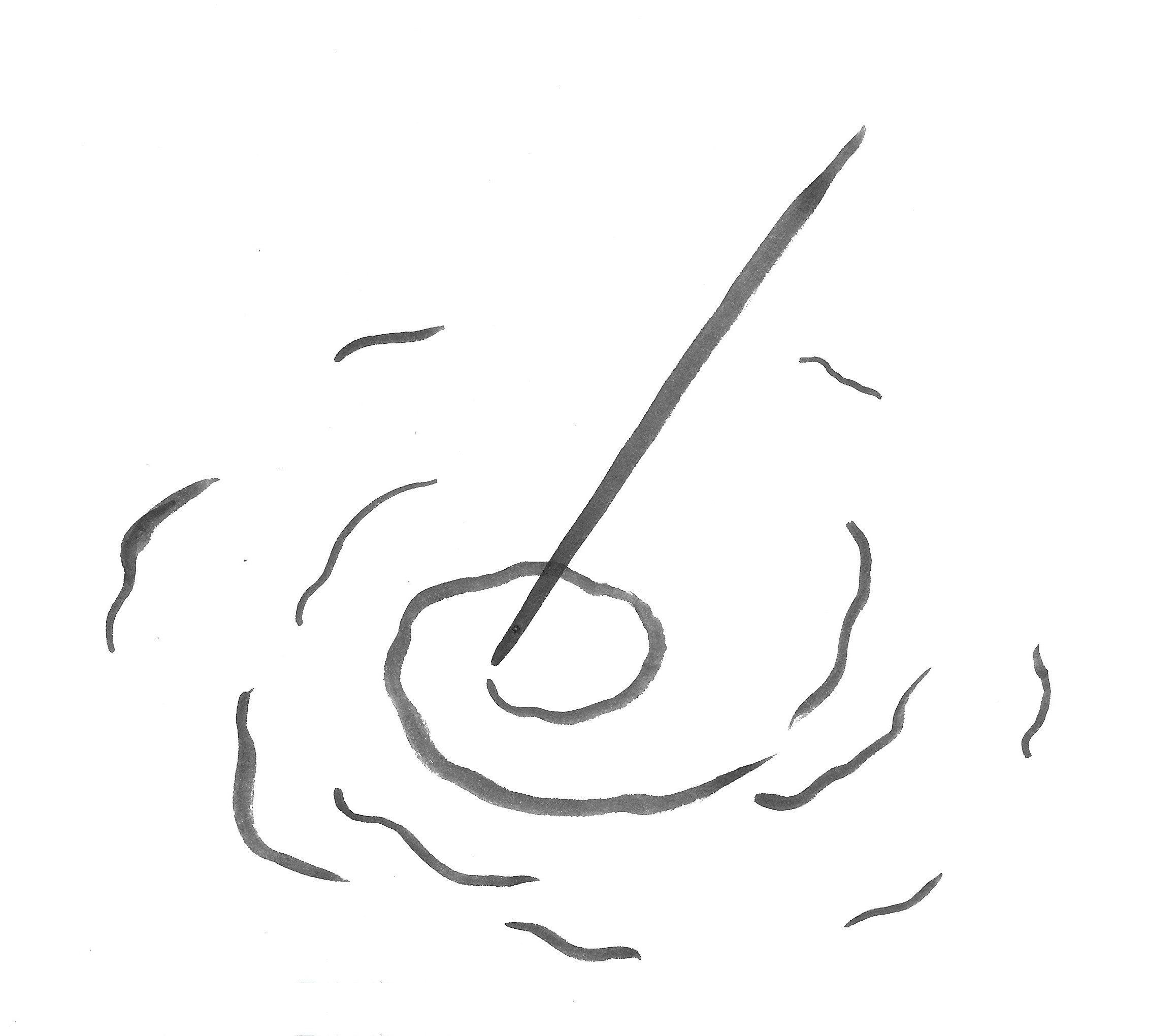You won’t harm the river any more, and perhaps you’ll make it to some interesting observations or meditations, which are often lacking time for in today’s world.
Your task is to explore the space around you: what surrounds you, whether the ground beneath your feet is unstable – hence the stick. Ancestors used it for exploring terrain. Is there something in the bushes that could threaten your health? Will the next step not be your last? However, under human influence, the space around us has become increasingly tamed, and we no longer need to pay attention to many aspects of nature because it’s dominated. It’s beneath us, it’s our servant, we don’t cooperate with it. But this time, let’s listen to nature, let’s allow ourselves to immerse in it, observe it, tap the stones – what sound do they make? – this is how music began.
Give yourself a chance to change the shape of the reflections on the water, swirling the stick across the surface. Observe whether your action was quickly silenced, or spread further, and why. Draw conclusions. Allow yourself to disturb the stream of water and observe how the sand rises. Let the water carry you away. Let the observation of the reflections on the flowing water be meditation and detachment from the busy world, quieting down over the remnants of the once-flowing river. The stick here is a link between adulthood and childhood, where one gets to know the world and allows for curious observation of nature, not paying attention to the passing time. We don’t feel the fleeting moment because we voluntarily allow it to flow, like this river. It seems like time stops, and the river begins to flow. We start paying attention to the reflections, to what’s at the bottom and what’s in the sky, looking downwards. We also notice the influence of humans: is it a natural channel, or a regulated path? Do we take care of the space around us, or does the water become a carrier of garbage?
Let’s allow ourselves to have an individual encounter with the river, so charming yet so dangerous. Perhaps the childish stick in this experiment becomes our guide: what can we do to improve the natural environment, but also in our personal lives? In simple observation of nature, we can arrange our thoughts in silence. In a sense of leisure, find solutions to problems. By slowing down, we begin to understand that problems of gargantuan proportions aren’t really that big, we just made them so by exaggerating them in our minds. Because of living in the world that we are or allowing to create in our minds.
Author: Aleksandra Żmuda
